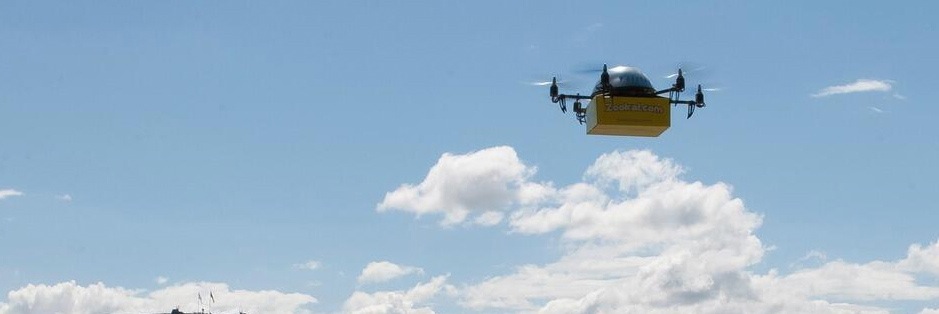Looking at textbook delivery service differently: Flying books may soon populate the skies through drones
In addition, the Federal Aviation Administration will first need to outline a clear policy for commercial drone usage, issuing regulations governing the commercial use of drones before such a system can make its way to a powerhouse nation.
Nonetheless, Zookal is hopeful. Using drones for commercial purposes has been easier in Australia, thanks to a 2002 ruling from the Australian Civil Aviation Safety Authority, allowing the use of drones in emergency services and by animal rights activists to spy on farmers they suspect of animal cruelty (Very controversial and another discussion altogether).
Ahmed Haider, Zookal CEO, claims that “as one of the few countries in the world to allow commercial drone activities, Australia is uniquely placed to create a new drone industry and shape the development of regulations in this space.”
How do the drones work:
So what happens when a student orders a textbook using Zookal’s new delivery service? First off, the drones are autonomous and unmanned, meaning they do not require humans to operate them. Any movement made by a drone is done of its own volition, although the final destination is obviously predetermined.
Upon selecting a textbook, customers will also be required to choose an outdoor location for where they want their purchases delivered. The location’s coordinates will then be transmitted via Zookal’s smartphone app which will enable the drone to move accordingly.
One can track the drone’s progress and the journey of their textbook order from the app on a Google-powered map. The customer can then head outside to the designated location once the drone is getting close.
The drone never fully lowers itself to the ground, but rather hovers overhead and lowers its textbook delivery. This lowering movement can be made with the tap of a button on one’s smartphone. As soon as the delivery has been made, the drone will presumably head back to Zookal headquarters for another textbook delivery.
The drones can carry up to four and a half pounds and will drastically reduce shipping costs to approximately $3, compared to $30 with the traditional route. The drones are not equipped with cameras to avoid any potential privacy or surveillance concerns.
Haider believes Zookal has overcome the challenges of operating a drone in a dense urban environment. It has collision avoidance systems to prevent collisions with birds, trees, buildings, and overhead wires and drones are required to stay ten feet above ground or higher during delivery at all times.
(View the Zookal drone in action here.)
Will the Drones Really be Effective?
There are issues with Zookal’s plans to innovate the textbook delivery industry. Critics have questioned Zookal’s ambitious new delivery method since its inception.
For starters, some have wondered why Zookal should even bother with drones when their flying will never outdo the download speed of an e-book.
There are also the inevitable regulatory challenges and safety concerns of operating an unmanned aerial vehicle in residential areas. Earlier this year for example, authorities in Shanghai shot down the world’s first cake drones, deployed by a bakery to carry its patisseries to the outskirts of the city.
According to the Shanghai Daily newspaper, one commentator worried: “what if a cake fell on a passer-by from the sky?”, echoing potential fears shrieking “you just dropped a book on me!” if this program literally and figuratively ‘takes off’. Just like with the Tacocopter, nobody really wants a taco slung at their heads, so of course some are going to be troubled about textbooks (which are heavier than tacos and cakes) hovering over their them.
As long as there is fear over concussions from random flying objects, perhaps more thought on this delivery system is in order.





























Share the post "Looking at textbook delivery service differently: Flying books may soon populate the skies through drones"